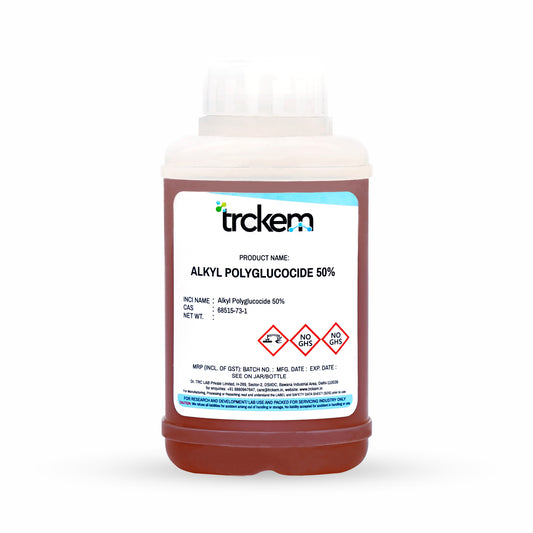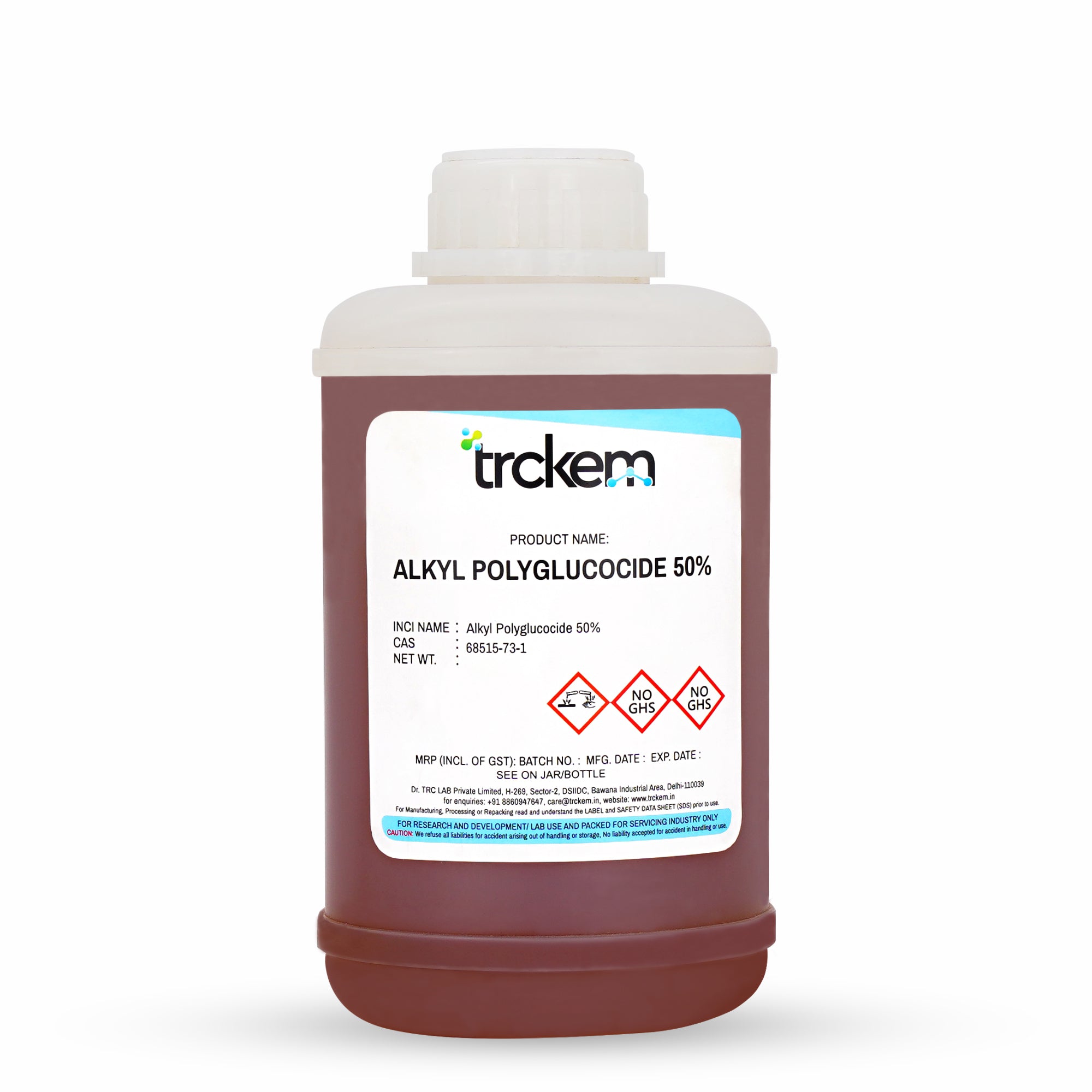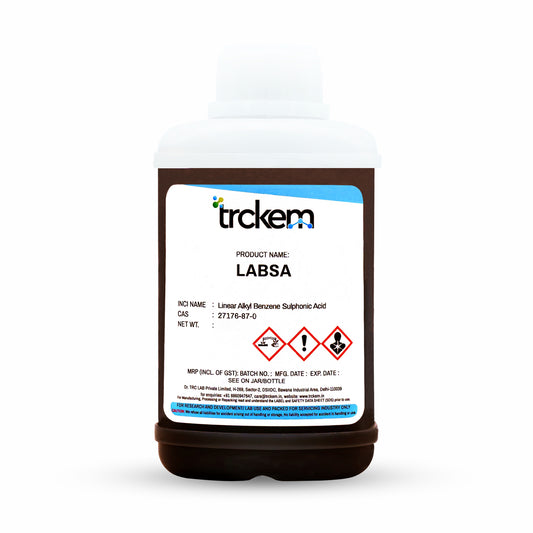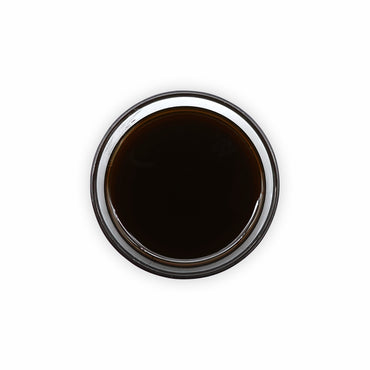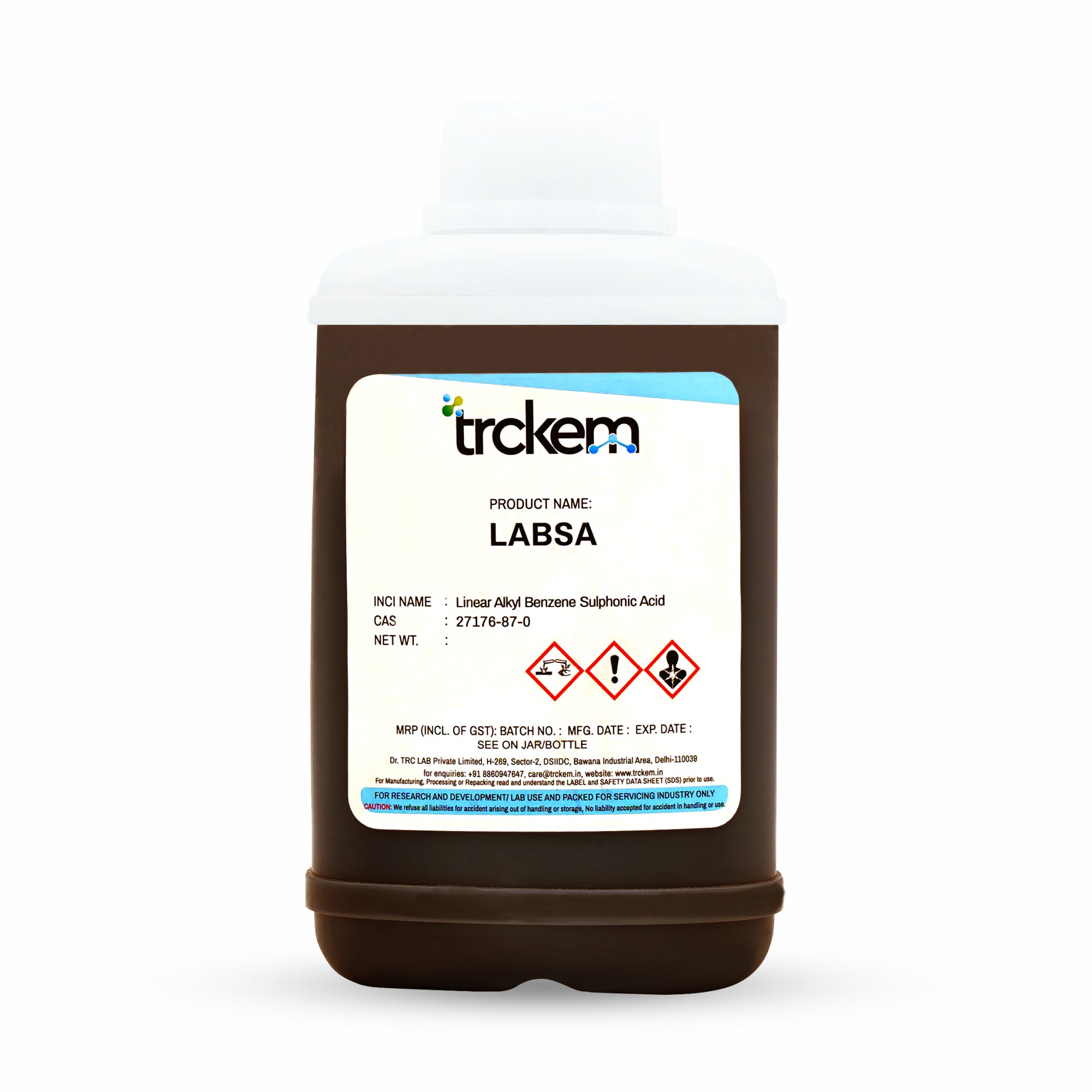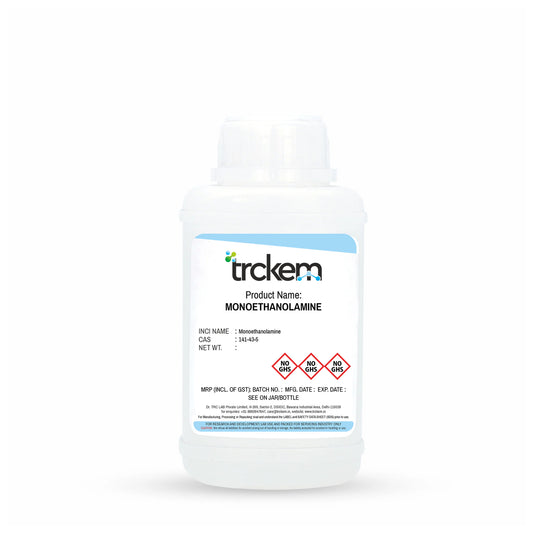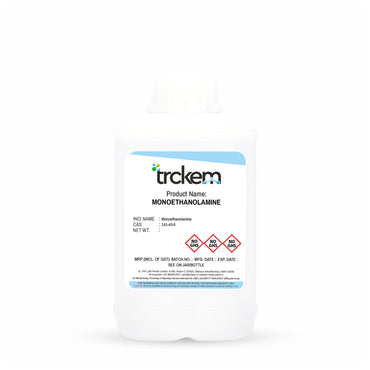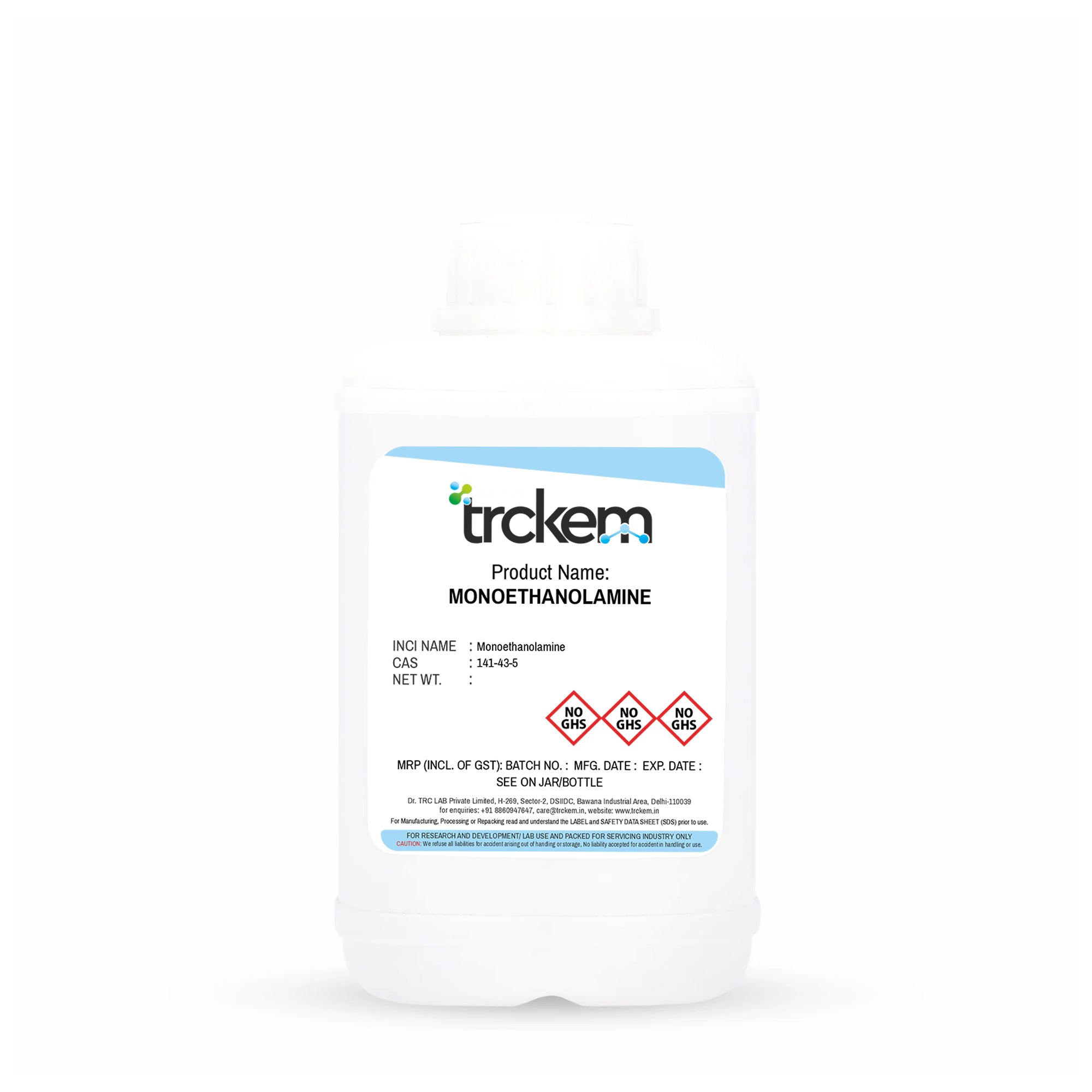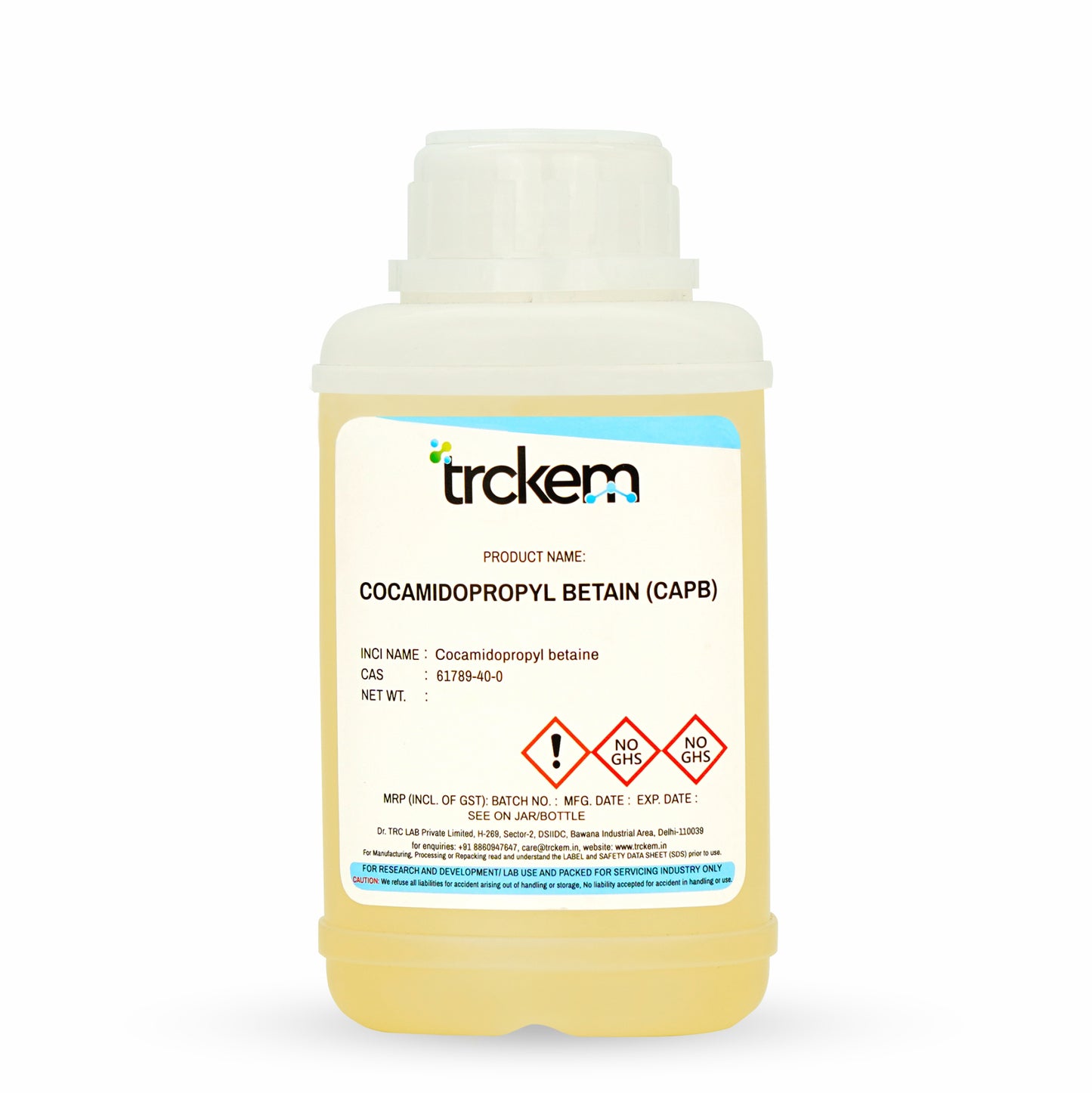
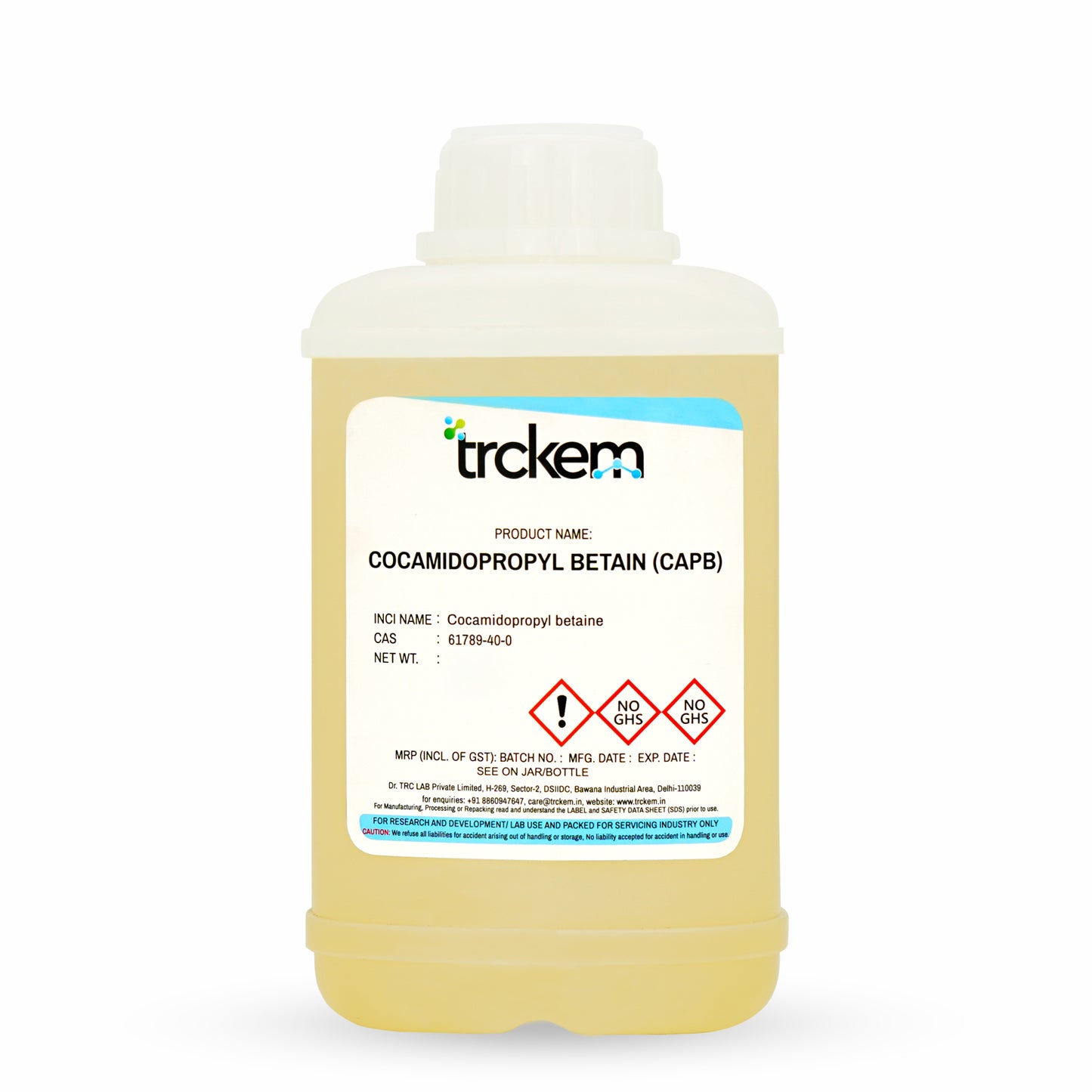
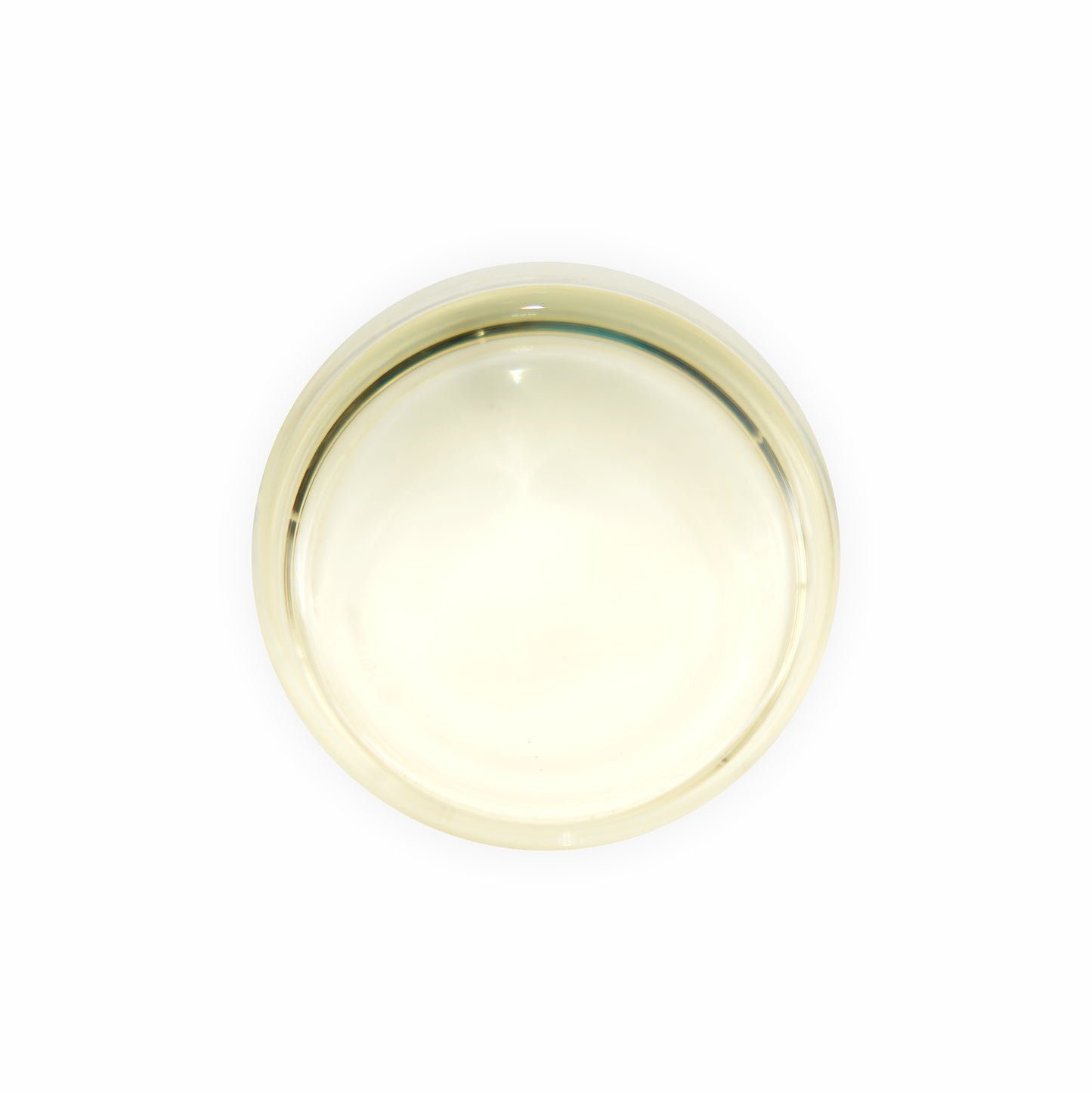
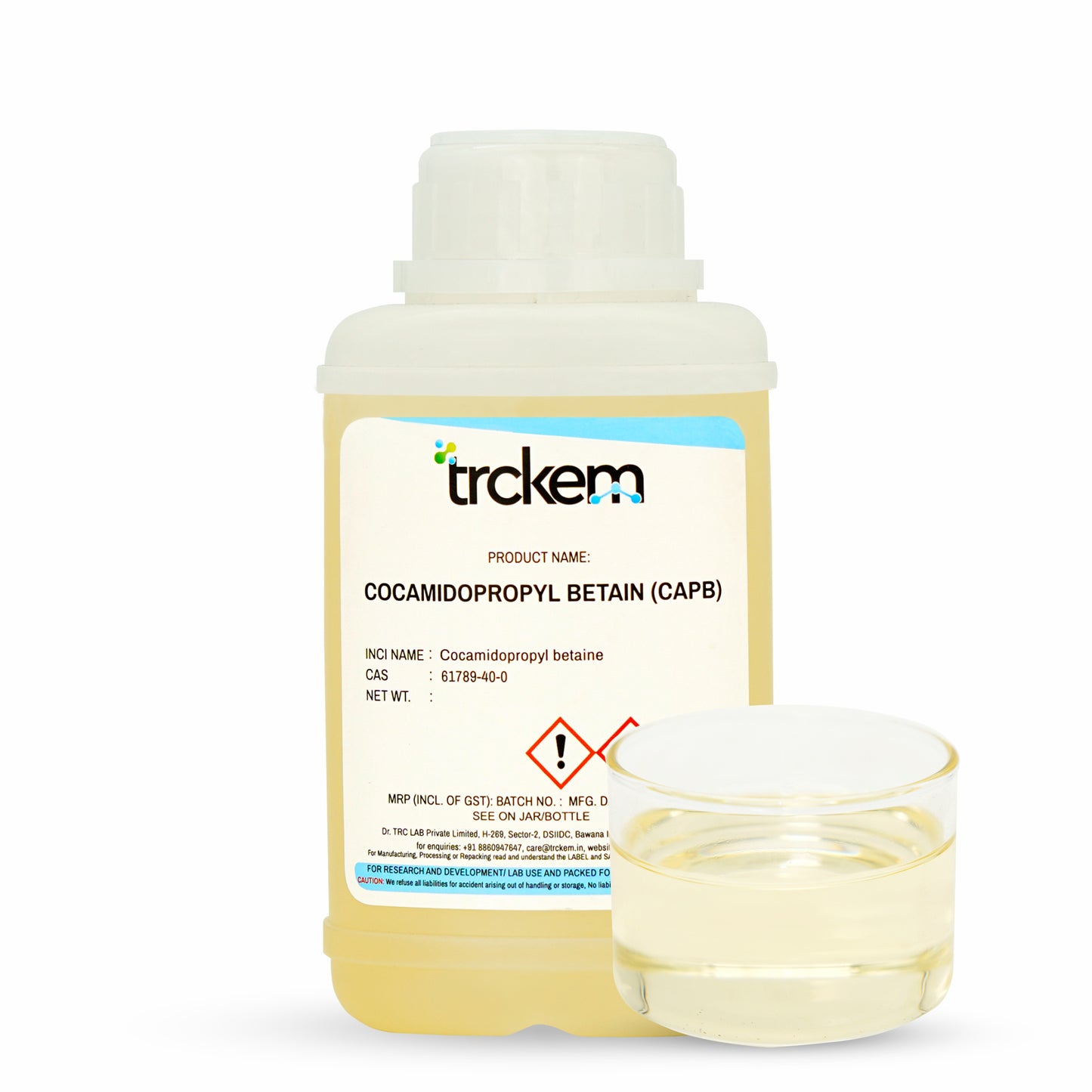
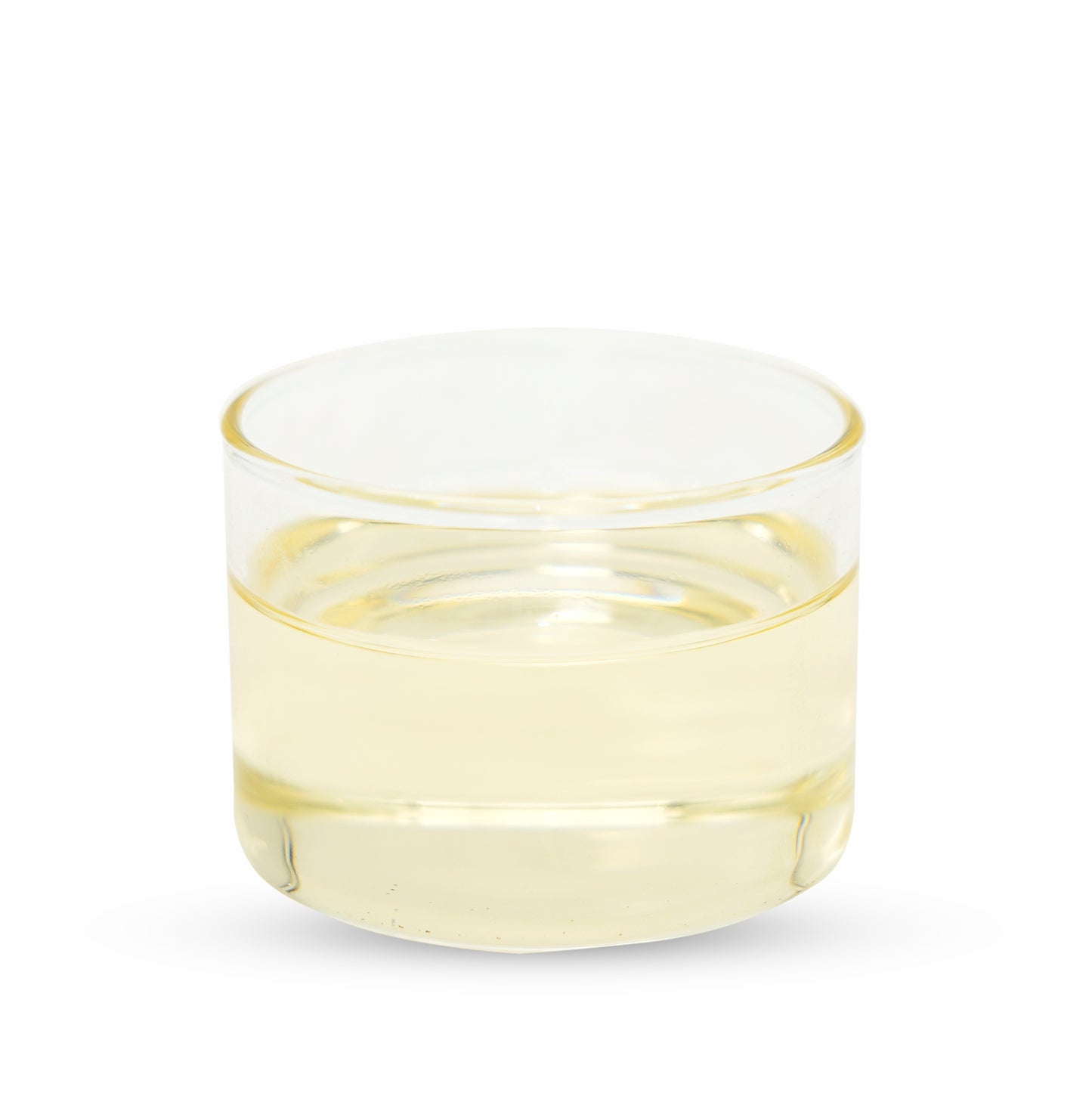
THE STORY OF COCAMIDPROPYL BETAINE (CAPB)

CAPB: The Gentle Foaming Surfactant for Mild Cleansing Formulas
Cocamidopropyl Betaine (CAPB) is a mild amphoteric surfactant derived from coconut oil. It’s a key ingredient in gentle cleansers, baby shampoos, face washes, and body washes due to its excellent foaming, cleansing, and skin-conditioning properties. CAPB reduces irritation when blended with primary surfactants, making it ideal for sensitive-skin and sulfate-free formulations.

Coconut-Derived Surfactant Made via Controlled Amidation & Quaternization
CAPB is produced by reacting dimethylaminopropylamine (DMAPA) with coconut fatty acids, followed by quaternization with monochloroacetic acid. This process yields a biodegradable, amphoteric surfactant that functions as both a foam booster and viscosity enhancer. TRCkem provides high-purity, low-amide content cosmetic grades suitable for mild skin and hair formulations.

Clean. Condition. Protect.
Core benefits in personal-care products:
✅ Creates soft, stable foam and rich lather
✅ Reduces irritation caused by harsher surfactants (like SLS/SLES).
✅ Adds conditioning & slip to skin and hair
✅ Improves viscosity and rinse-off performance.
✅ Compatible with anionic, cationic, and nonionic systems.
Commonly used in: face washes, baby shampoos, shower gels, shaving foams, micellar cleansers, and sulfate-free haircare.

Dermatologically Tested & Globally Approved Mild Surfactant
• Typical use level: 3–15% active content depending on product type
• Works synergistically with SLES, SLS, and glucosides for balanced cleansing
• Stable in pH 4–8, suitable for clear formulations
• Biodegradable, mild, and ECOCERT / COSMOS approved (when naturally derived)
• Non-toxic and well-tolerated on skin, hair, and mucous membranes
• Store sealed, dry, and cool; avoid prolonged exposure to light and air to prevent discoloration
Formulator’s Queries, We Answered
1. What is Cocamidopropyl Betaine (CAPB)?
Cocamidopropyl Betaine (CAPB) is a mild, amphoteric surfactant derived from coconut oil. It is widely used in personal care products for its foaming, cleansing, and conditioning properties.
2. What is the CAS number and INCI name of CAPB?
CAS Number: 61789-40-0
INCI Name: Cocamidopropyl Betaine
3. What are the benefits of CAPB in personal care products?
✔ Gentle Surfactant – Provides mild yet effective cleansing.
✔ Foaming Agent – Boosts foam and enhances lather.
✔ Conditioning Properties – Leaves skin and hair feeling soft.
✔ Compatible with Other Surfactants – Improves formulation stability.
✔ Reduces Irritation – Helps make formulations milder, even in sulfate-free products.
4. What types of personal care products contain CAPB?
Shampoos & Conditioners – Enhances foam and provides a conditioning effect.
Facial Cleansers & Body Washes – Offers mild cleansing without drying the skin.
Liquid Hand Soaps & Dishwashing Liquids – Improves foam and viscosity.
Baby Products – Commonly used due to its mild nature.
Makeup Removers – Helps dissolve makeup and cleanse the skin gently.
5. How is CAPB used in formulations?
Typically used at 5-15% concentration in personal care formulations.
Works well with anionic and nonionic surfactants to enhance foam and cleansing performance.
Helps reduce irritation caused by harsher surfactants like SLS (Sodium Lauryl Sulfate).
6. Is Cocamidopropyl Betaine safe for cosmetic use?
Yes, CAPB is generally considered safe and is widely used in sensitive-skin-friendly and baby care products. However, some individuals with coconut-derived ingredient sensitivities may experience mild irritation.
7. Where can I buy Cocamidopropyl Betaine (CAPB) for personal care formulations?
CAPB is available from cosmetic ingredient suppliers, chemical distributors, and online marketplaces.








